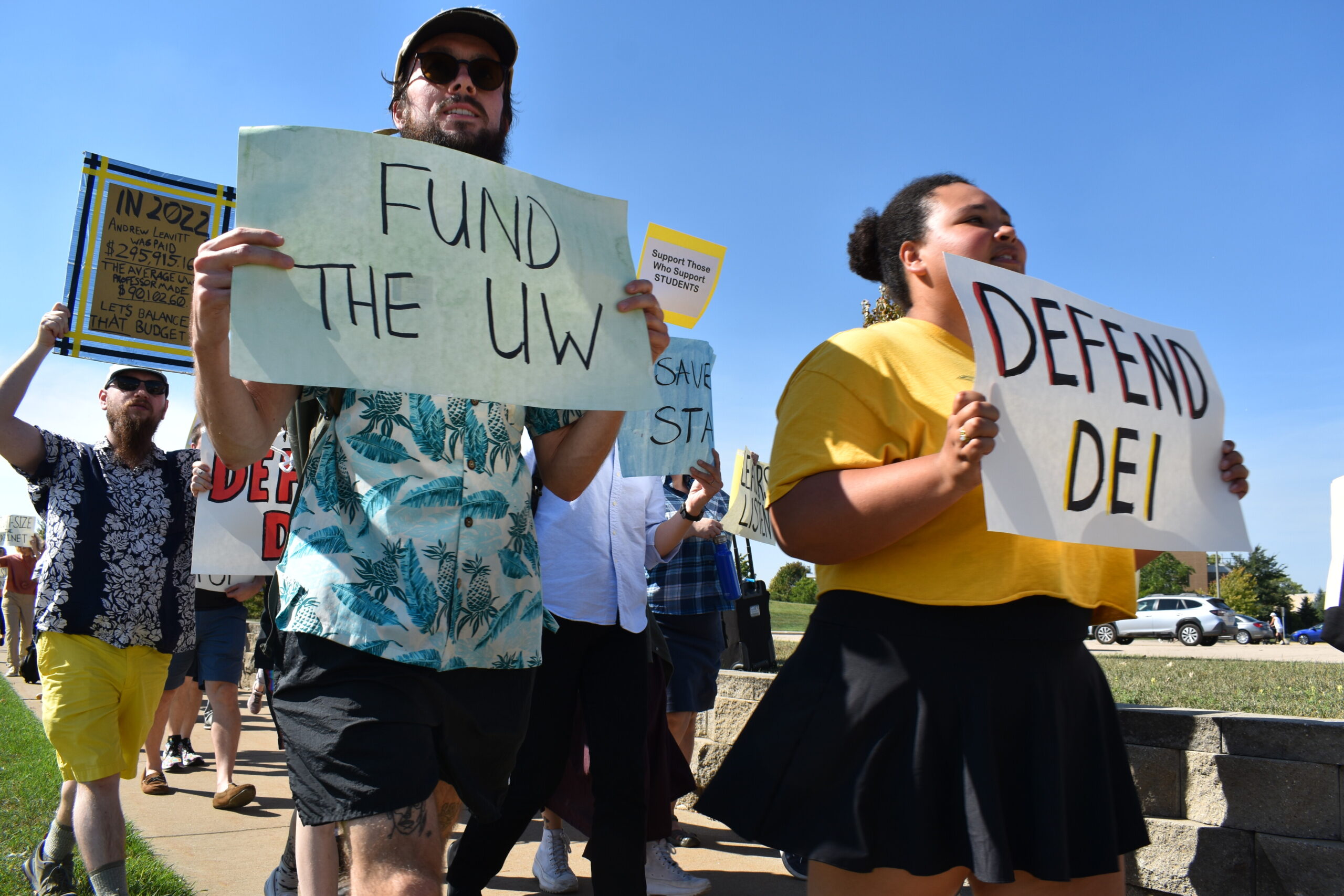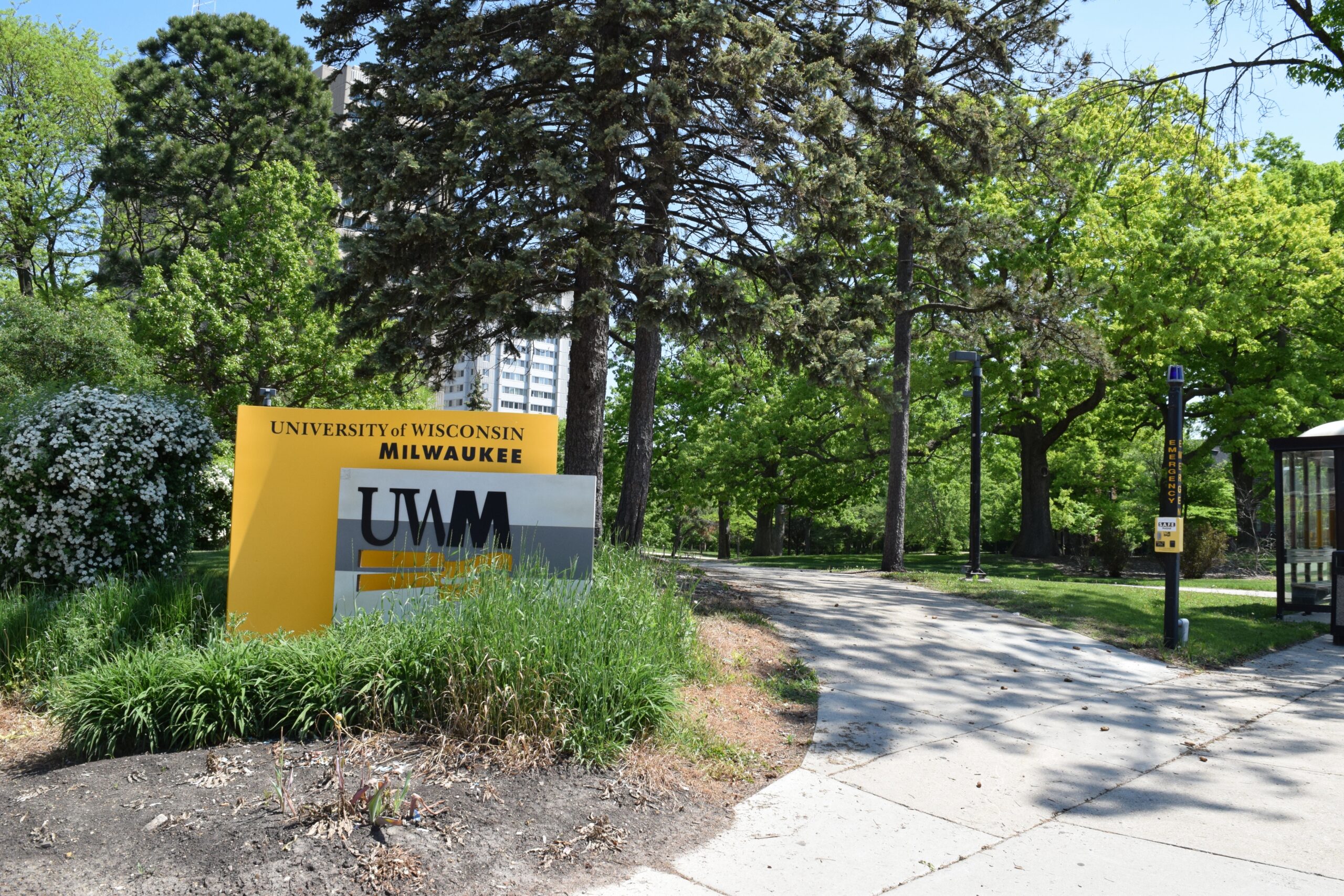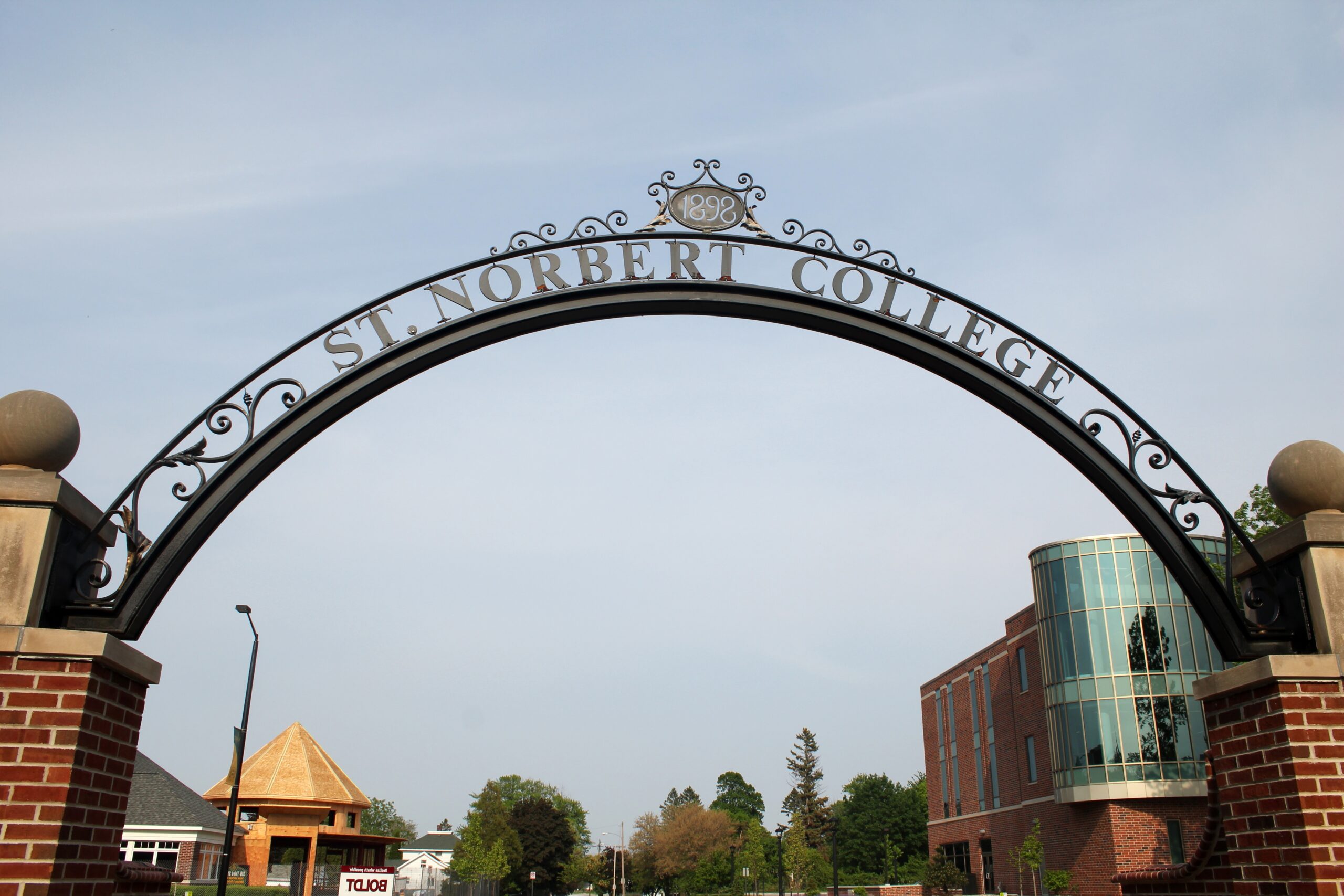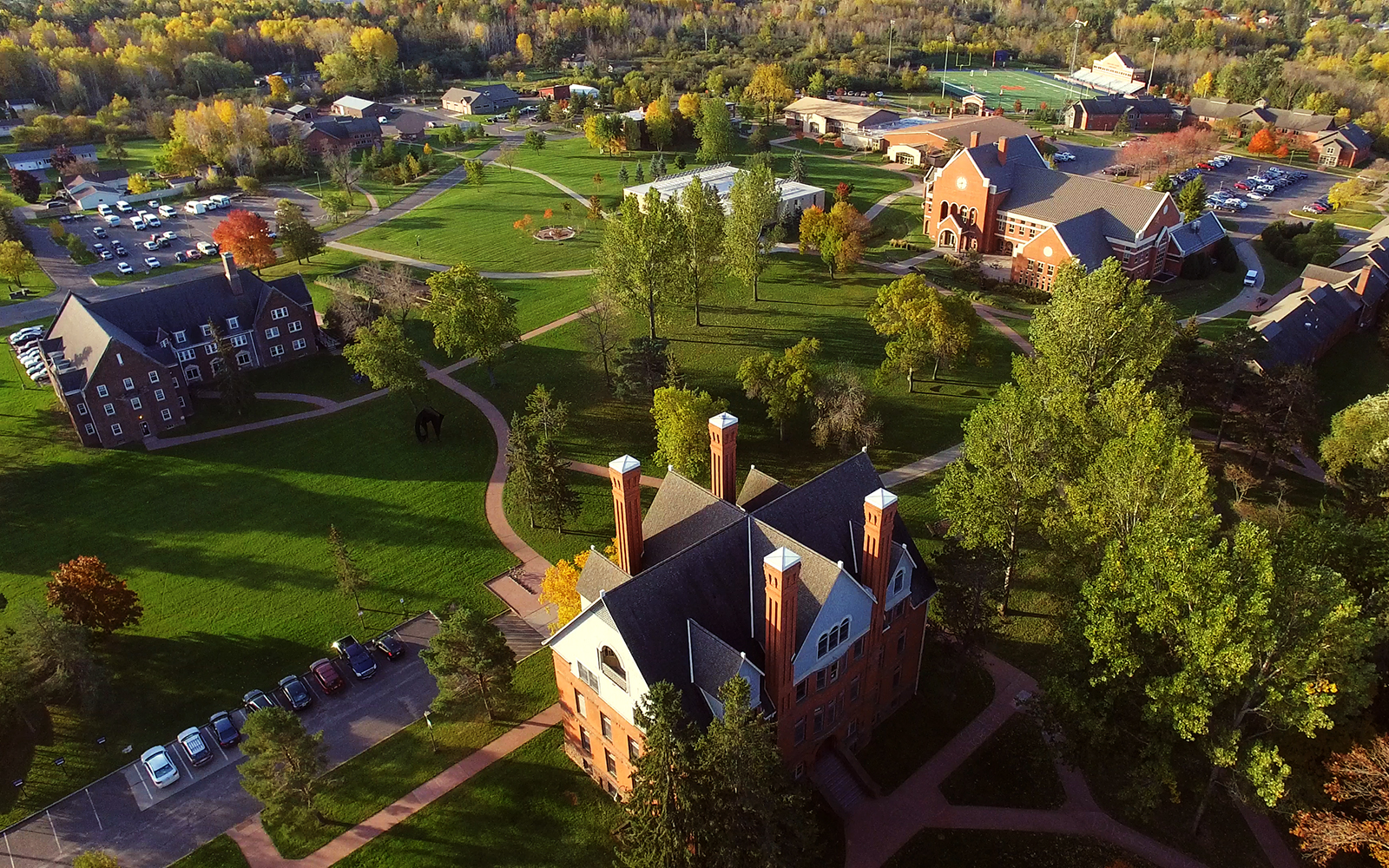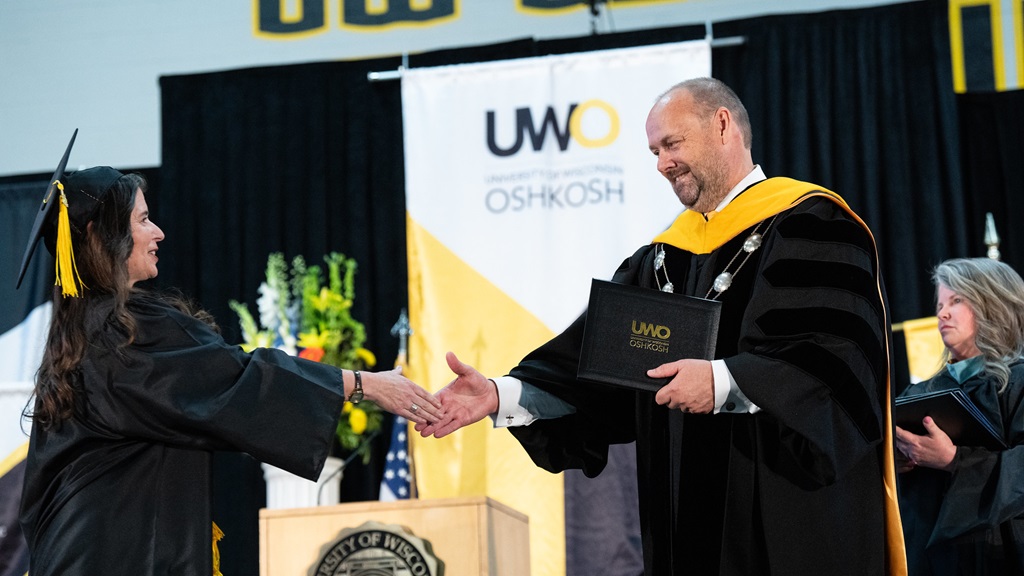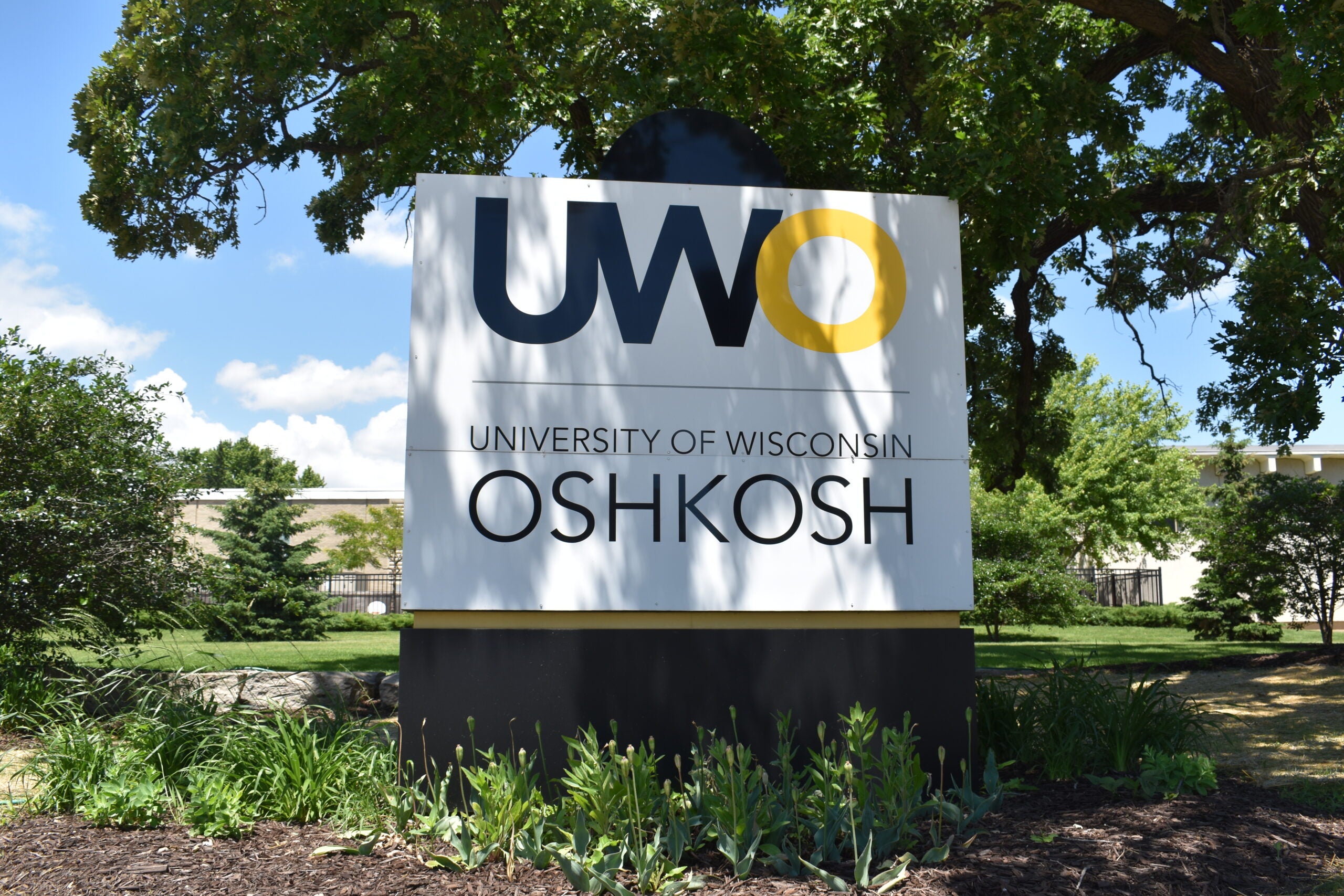When Jeffrey Pickron moved to Wisconsin 20 years ago to join his wife at the University of Wisconsin-Oshkosh, he says the school told him he would have a secure job as a lecturer for years to come.
Being a member of the university’s instructional academic staff meant taking less pay and teaching more than a faculty position, Pickron said. But it allowed him to teach history at UW-Oshkosh, as well as help organize oral history projects chronicling a 1960s flashpoint in racial tension on campus and telling the story of the state’s farmers.
During his time at UW-Oshkosh, he said he’s also helped students earn national awards for their work and continue their studies or find careers after graduation.
Stay informed on the latest news
Sign up for WPR’s email newsletter.
Now, Pickron is one of roughly 200 staff members who could lose their jobs — either through layoffs or early retirement incentives — as UW-Oshkosh faces an $18 million budget deficit. Beyond layoffs, the university is requiring every employee to take unpaid days off between September and June 2024, with higher-salaried employees subject to more furlough time.
While Pickron said he hasn’t received a letter saying he’s being laid off, he said the university has “taken away” his spring classes, even after he signed a one-year contract to teach both semesters this year.
“My wife and I came here from Texas, based on the commitment that if we came here, we would have jobs, and we could be a part of this community for a long time,” he said. “It feels like an enormous slap in the face, and it’s going back on a commitment that was made to my wife and I.”
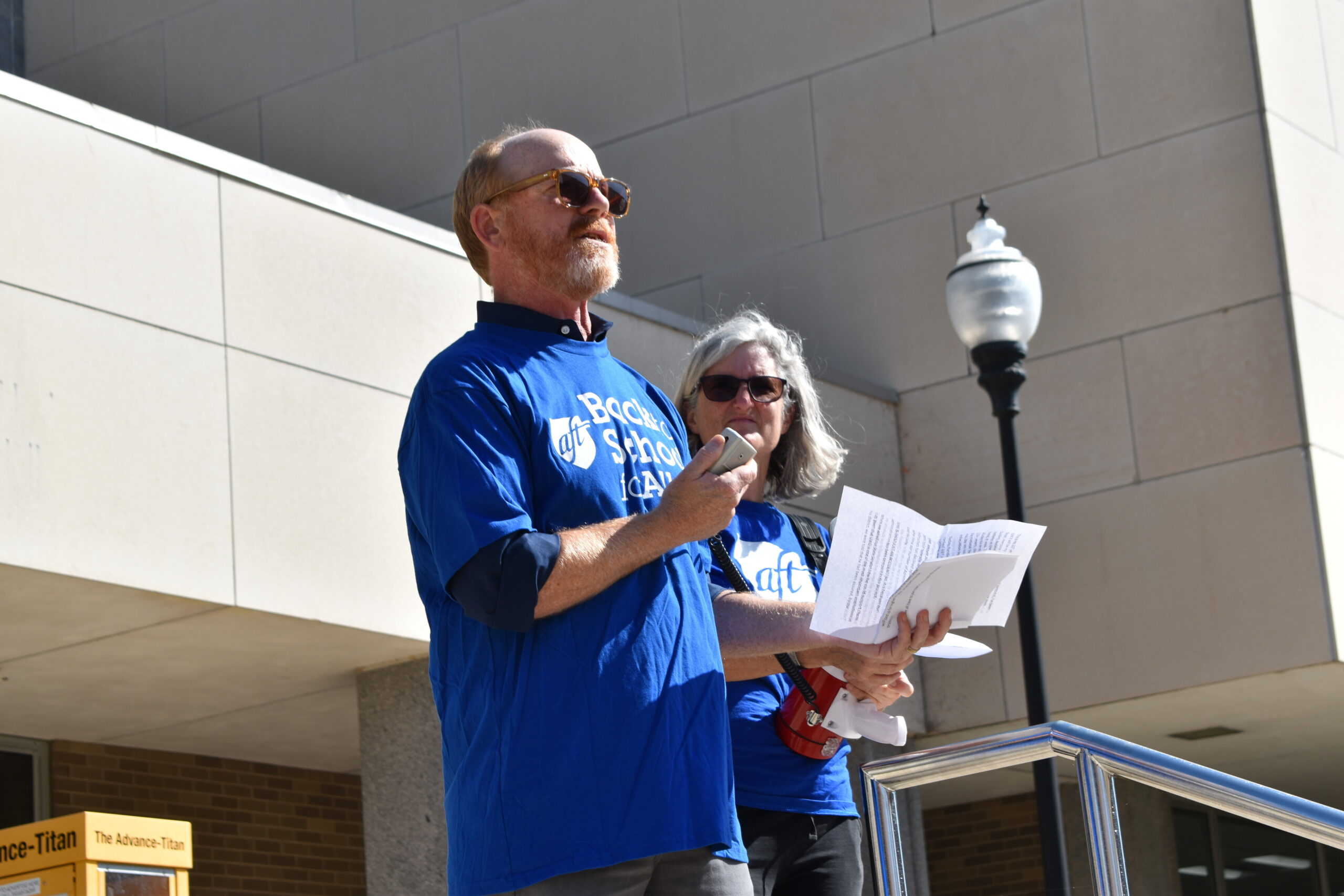
Pickron and his wife, Michelle Kuhl, an associate professor of history, joined dozens of faculty, staff, students and community members Tuesday in protesting UW-Oshkosh’s Institutional Realignment Plan and the state Legislature withholding $32 million from the UW System unless it ends diversity, equity and inclusion, or DEI, programming. They were also joined by employees from other state universities.
During the rally, chants of “put students first,” “save our staff,” “chop from the top” and “hands off my DEI” filled the air as the group marched several blocks through campus. The rally ended outside the campus library, near the university’s administration building.
The rally was organized by American Federation of Teachers-Wisconsin and the union’s local chapter, United Faculty & Staff of Oshkosh. The union, which doesn’t have collective bargaining power, says UW-Oshkosh’s plan to address the budget deficit will increase teaching loads by placing the brunt of the burden on academic staff and faculty, rather than administrators.
The union also said UW-Oshkosh’s administration has increased “significantly” in the last 10 years, while teaching positions have decreased.
They’ve created a petition, calling on the university to find cost savings by cutting administrative positions, preserve instructional academic staff, give faculty and staff more of a voice in decision-making and to be more transparent about UW-Oshkosh’s finances.
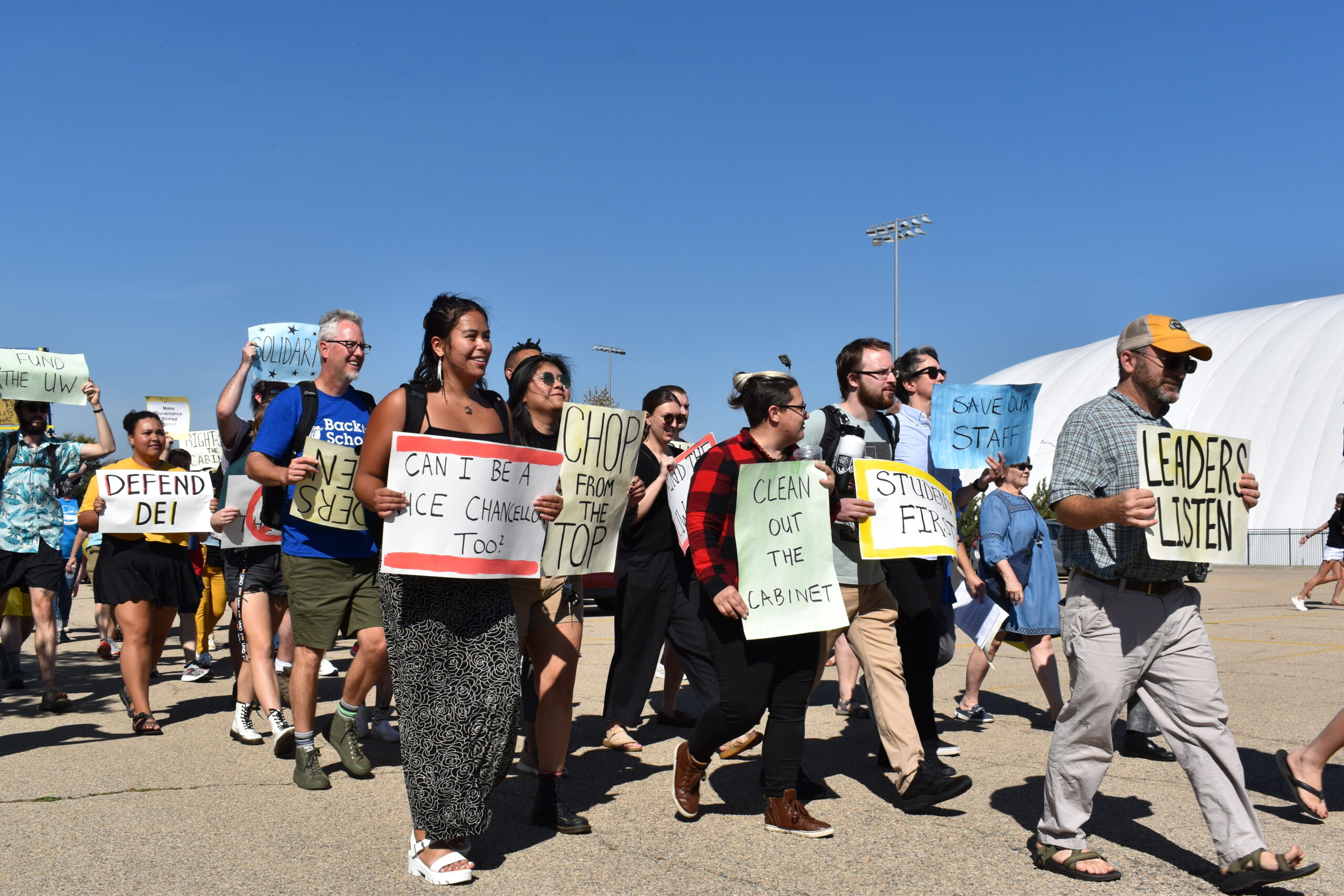
During the rally, Cindy Schultz, academic department associate for the advertising, multimedia journalism and public relations department, said UW-Oshkosh administrators have been financially irresponsible, and now are forcing employees to face the consequences of that poor budgeting.
“They are targeting the lower-level employees and the top administration, the people who have created this problem, are going to be able to keep their cushy jobs,” she said. “And the rest of us are worried about how we’re going to pay our mortgages.”
UW-Oshkosh declined to comment, but provided a letter Chancellor Andrew Leavitt and Provost Ed Martini sent to the Faculty Senate regarding the concerns in the petition.
In the Sept. 30 letter, administrators said their goal is to protect the school’s “core teaching and learning missions” by protecting faculty from layoffs, and that more information would be released in the coming weeks with specifics on the positions being eliminated.
“We cannot realize the level of salary savings needed to eliminate our structural deficit without eliminating senior level staff and administrative positions,” Leavitt and Martini wrote.
Even so, Kuhl said Tuesday’s rally was about supporting UW-Oshkosh students and showcasing how budget cuts to the UW System have harmed them.
“It’s both the lack of support from the Legislature and what looks like poor decision-making from our administration,” she said. “That’s resulting in the layoffs of hundreds of people, which will have a terrible effect on education.”
She also said academic employees on furlough are essentially taking a pay cut because teaching classes, preparing lectures and grading papers still requires the same amount of time that it always has.
“If you’re teaching classes, and you’re putting students first, you don’t have less work,” she said.
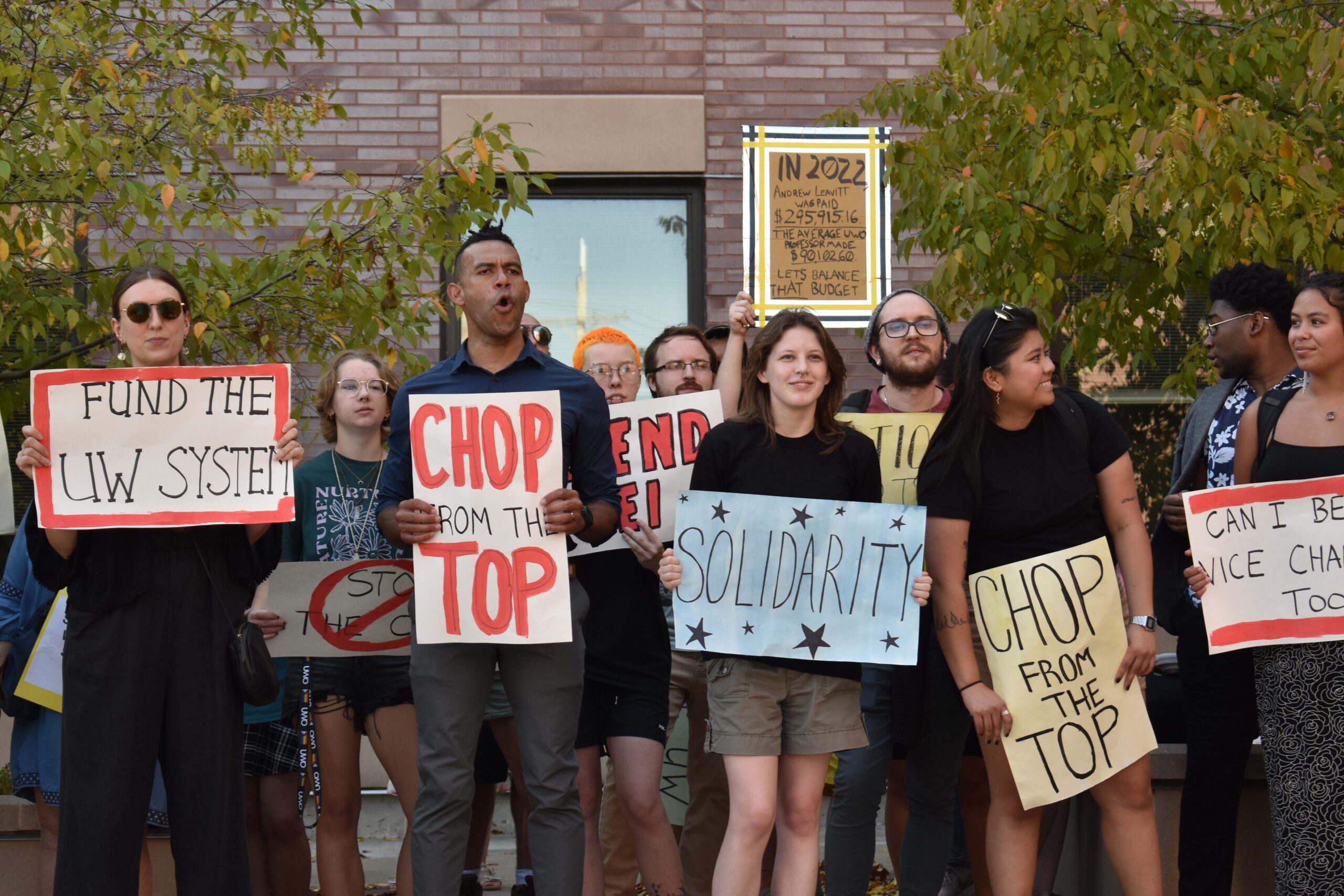
UW-Oshkosh grad student Will Inghram said he graduated from the university last year but decided to return for his master’s degree because of the relationships he developed on campus.
“I stayed here at UWO because of the faculty and staff that I get to meet with every single day,” Inghram said. “I didn’t stay for the chancellor, I didn’t say for the upper administration. I’m just a number to them. I stayed for the family that I’ve made here.”
UW-Oshkosh isn’t the only school in the system facing budget shortfalls this year. UW-Parkside and UW-Platteville announced in August they were considering furloughs, retirement incentives and layoffs to address budget deficits that total about $15 million. In fact, as of late August, 10 out of 13 campuses were entering the new fiscal year with structural deficits.
And last month, Republican Assembly Speaker Robin Vos, R-Rochester, said he will try to block pay raises for about 34,000 people who work in the UW System unless campuses eliminate DEI positions, saying he won’t support another nickel going to state universities unless that happens.
State Rep. Lori Palmeri, D-Oshkosh, spoke at Tuesday’s rally. Her spouse is a UW-Oshkosh communications professor. She said the state Legislature could help solve the budget crisis across the UW System “with one little stroke of the pen.”
“In large part, there are just a few folks who are making these decisions down in Madison,” she said. “Please contact your state representatives, your senators, your Joint Finance Committee folks, because they are the ones who are holding up the funding. We have to demand refunding of the UW System immediately.”
Wisconsin Public Radio, © Copyright 2025, Board of Regents of the University of Wisconsin System and Wisconsin Educational Communications Board.
